10 Best Substitutes for Sesame Oil
When you buy through our links, The Breslin may earn an affiliate commission. Learn more
Sesame oil substitutes would totally enhance your lifestyle. It is so annoying that you are ready to step into the kitchen and prepare a healthy, flavorful lunch, and you realize something is missed. Then, you must go out to get sesame oil.
This article solves your problem. There’s no more worry about the absence of sesame oil in the pantry. In these circumstances, my list does help a lot. No more going out; everything you need is in your kitchen cabinet, and substituting sesame oil will solve your problem.
What Is Sesame Oil?
Sesame oil is a vegetable oil extracted from sesame seeds. Sesame is an agricultural product grown in many tropical countries (1). Sesame seeds are tiny but contain a considerable amount of oil, so they are extracted into sesame oil.
Sesame oil is considered the queen of oils because of its excellent benefits. Sesame oil has a beautiful aroma and taste. The oil has a slightly pungent smell and is used in various fields, especially in cooking and beauty.
Several commercial sesame oils are present in the market. You should consider carefully to find out the best sesame oils that suit your taste and ensure nutritive values.
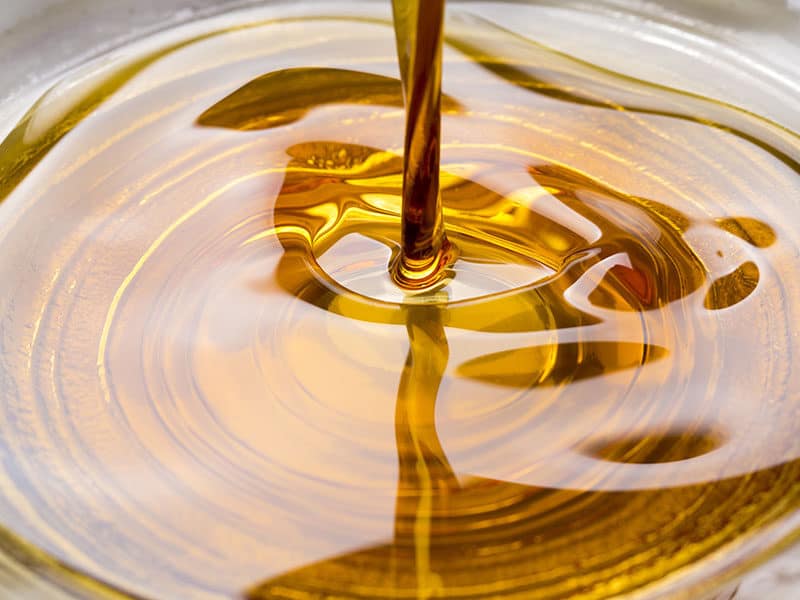
Health Value
Sesame oil has anti-inflammatory and antioxidant properties, which help reduce pain associated with arthritis as well as muscle pain. In addition, sesame oil helps fight stress, tension, nourishes the nervous system, relieves fatigue, cures insomnia, and improves vitality. (2)
Sesame oil contains linoleic acid, an omega-6 fatty acid that helps reduce bad cholesterol, increase good cholesterol levels in the body, and is good for the heart. In addition, the calcium in sesame oil helps restore the mineralization of tooth enamel, which helps keep bones strong, limiting the risk of osteoporosis in the elderly.
Sesame oil is one of the best natural moisturizers for the skin. They have the ability to penetrate deeper into the skin than conventional moisturizers. Therefore, it is used to massage areas prone to stretch marks for pregnant women and after giving birth. (3)
Types And Uses
Sesame oil is divided into two types: toasted sesame oil and light sesame oil. Each type has its own features and is served different needs.
The previous form is often served as a flavoring agent in processed dishes: mixing salads, marinating foods, kneading dough. In addition, this sesame oil form is often known as a seasoning in Chinese, Japanese, Middle Eastern, Korean, and Southeast Asian cuisines.
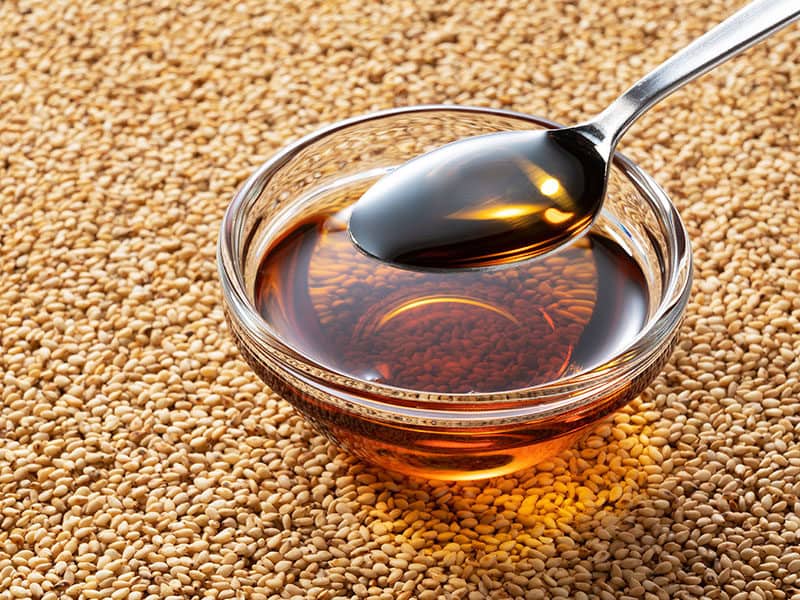
The lighter version is used as cooking oil instead of animal fat or other vegetable oils due to its high heat tolerance. This type has slightly less aroma and taste. Any neutral oils that have high smoke points could replace the light sesame oil.
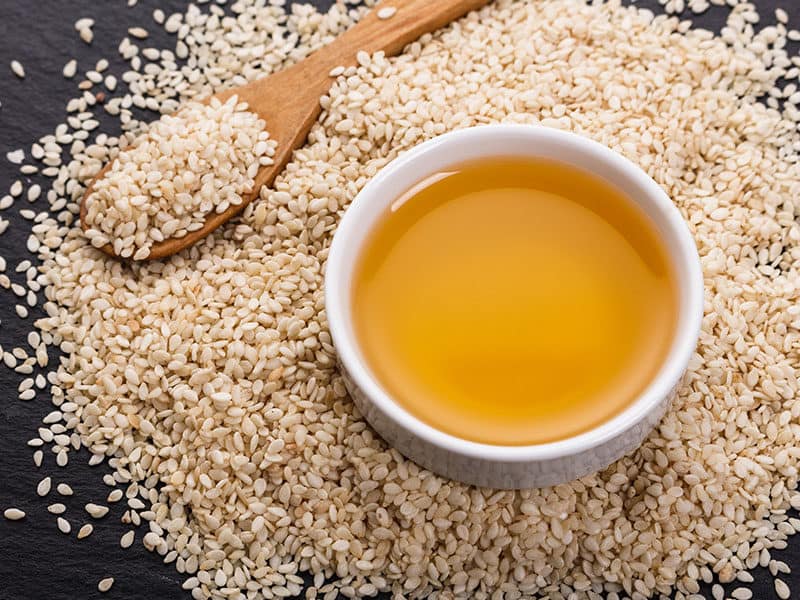
What Are Sesame Oil Substitutes? List of The 10 Closest Alternatives
Here are some of the sesame oil alternatives that you should try. The ingredient in the list is not only suitable sesame oil substitutes but also healthy options you should consider to use in daily meals.
1. Walnut oil
2. Peanut oil
3. Roasted sesame seed oil
4. Tahini oil
5. Coconut oil
6. Canola oil
7. Perilla oil
8. Olive oil
9. Avocado oil
10. DIY sesame seed oil
10 Best Sesame Oil Substitutes Ever
Many sesame oil substitutes are familiar ingredients in the kitchen, so it is not hard to find them. Before scrolling down to figure out noteworthy features about them, let’s take a look at the following chart now!
| Sesame oil substitutes | Proportion |
| Walnut oil | 1 tablespoon of walnut oil to 1 tablespoon of sesame oil |
| Peanut oil | 1 tablespoon of peanut oil to 1 tablespoon of sesame oil |
| Roasted sesame oil | 1 tablespoon of toasted sesame seeds to 1 tablespoon of sesame oil |
| Tahini | ¾ tablespoon of tahini to 1 tablespoon of sesame oil |
| Coconut oil | 1 tablespoon of coconut oil to 1 tablespoon of sesame oil |
| Canola oil | 1 tablespoon of canola oil to 1 tablespoon of sesame oil |
| Olive oil | 1 tablespoon of olive oil to 1 tablespoon of sesame oil |
| Avocado oil | 1 tablespoon of avocado oil to 1 tablespoon of sesame oil |
| DIY sesame seed oil | 1 tablespoon of DIY sesame seed oil to 1 tablespoon of sesame oil |
Due to the uses of sesame oil that have been presented above, there will be three groups of substitutes: substitutes for toasted sesame oil, substitutes for light sesame oil and substitutes for both types.
Toasted Sesame Oil Substitutes
Toasted sesame oil has a pungent flavor and aroma. Therefore, a nice swap for this type should be a savory ingredient.
1. Walnut Oil
Walnut oil is derived from walnut kernels, scientifically known as Juglans Regia. This oil usually reaches you as cold-pressed or refined and is known as one of the most expensive natural oils on the market. Currently, this oil is increasingly more and more popular in many home kitchens.
Walnut oil is an excellent swap with toasted sesame oil due to its rich nutty taste. In addition, the oil has a pretty low-pointed smoke. Therefore, it does best as a final touch in uncooked dishes, a dressing for salad, or a seasoning for Asian dishes.
Walnut oil is not only delicious, but it is also rich in omega-3 fatty acids, which are known for their heart health effects.
According to experts, walnut oil contains monounsaturated and polyunsaturated fats, especially linoleic, gamma-linolenic and oleic acids. They also act as antioxidants, anti-inflammatory due to their rapid energy conversion and beneficial effects.
The side effects of using walnut oil are relatively few; they only include potential weight gain, allergy problems. Therefore, it is perfectly safe for the vast majority of people. It is perfectly safe to use this oil as long as you limit the amount of oil to moderation.

2. Peanut Oil
Peanut oil is also known as groundnut oil or Arachis oil. This vegetable oil is derived from peanut plants. Peanuts are often referred to as a famous ingredient with Americans, Africans, and some countries in Asia.
This oil substitute can replicate the nutty flavor of toasted sesame oil. It’s a wonderful alternative to replace the real stable in marinating food and mixing salads.
Peanut oil is another healthy option that is a host of the antioxidant vitamin E. The substitute helps enhance heart health, supports diabetes to lower the content of sugar in the blood.
Surprisingly, peanut oil is safe for almost all people allergic to peanuts, and removing effects on beauty helps regenerate damaged hair and protect your skin.
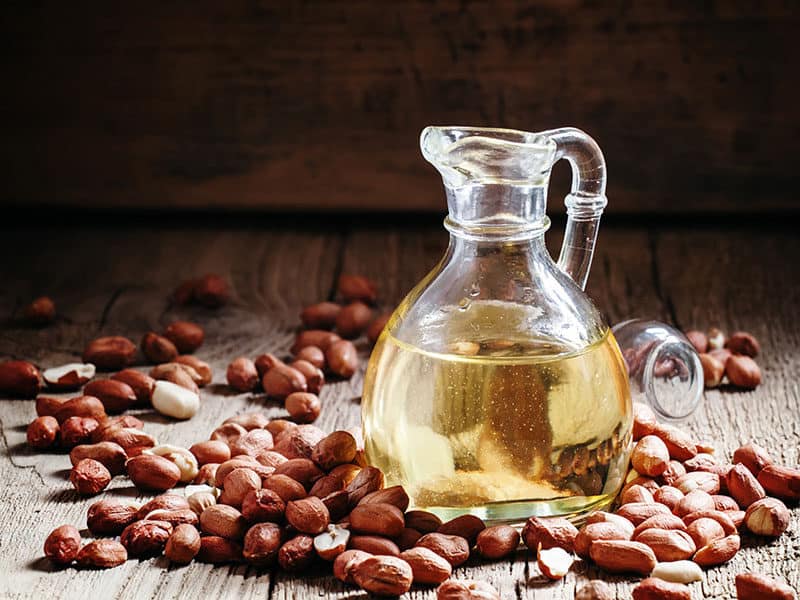
3. Roasted Sesame Seeds
Roasted sesame seeds are the best substitutes for sesame oil owing to their resembling flavor profiles. Along with Tahini, this backup option performs perfectly in recipes that call for sesame oil taste but not the texture.
Lacking oil makes it a wrong choice to be used as a binder in salads, sauces. You can sprinkle over your cook instead for the more desired flavor. For example, just a little bit of roasted sesame seeds impart a fragrant flavor in my best BBQ sauces for a summer party in the backyard.
Roasted sesame seed is the most affordable alternative, which packs various nutrients and health values. Sesame seeds are rich in fiber, vitamins, antioxidants, and anti-inflammatory. Therefore, consuming these seeds helps the body control blood pressure, sugar content in blood, strengthen bones, enhance heart health, etc.

4. Tahini
Tahini is a mixture of the main ingredient from sesame seeds. It can not only process many attractive dishes, but they also have a wide range of health benefits.
Tahini is also known as sesame seed paste. It is a traditional ingredient in some countries in Asia, Africa, and the Middle East.
Tahini is a versatile ingredient that can serve different purposes. Depending on the culture, tahini can be used as a condiment, eaten directly, or processed into many nutritious dishes.
It performs in a creamy texture which serves well as a spread or addition to recipes. You can also dilute it with some neutral oil to get the desired creamy substance when using it as a salad dressing.
This one is also a close match to toasted sesame oil in terms of flavor. Tahini boasts a similar nutty flavor profile that works well as a seasoning and salad dressing.

Light Sesame Oil Substitutes
Furthermore, to replace the lighter form of sesame oil, the substitutes needn’t lend a too strong flavor but these alternatives must have high smoke points to be served as great cooking oil.
5. Coconut Oil
Coconut oil has been used in many Asian countries for centuries. However, in recent years, coconut oil has gained popularity in American meals for its health value.
Coconut oil is favored due to its sweet aroma and taste. It can be used in salad dressing, sauces. However, they won’t add any nutty, earthy flavor to dishes at all.
Therefore, it won’t be an excellent match to toasted sesame oil. But if you don’t mind the add-in flavor, feel free to use it.
Extra virgin coconut oil is the best oil you can use for high-heat cooking, including frying, sautéing, and grilling because it has a high smoke point, and the fat in coconut oil is mainly natural saturated fat – about 90%. However, you should also not fry for too long.
In addition to cooking at high temperatures, coconut oil is also a perfect product for oral health care and heart health. It also helps kill harmful bacteria in the digestive tract and quickly provides energy for the body.
Coconut oil is worth adding to the grocery list next time you go to the supermarket. Learn more excellent recipes in this video. The guy’s pantry hack is so great.
6. Canola Oil
Canola oil has an extremely high smoke point. So it’s not until about 400 degrees Celsius that the oil will start to smoke. At this temperature, fat molecules begin to break down and create harmful compounds.
Smoke point is an essential factor when choosing a healthy cooking oil to replace light sesame oil. High smoke point makes canola oil ideal for sautéing, frying, baking, deep-frying, and other high-heat cooking methods.
Canola oil is additionally a neutral oil that has a very mild taste. Therefore, you will be free to use the oil without worrying about tainting your recipes with an undesirable pungent aroma.
The widely popular canola oil is low in saturated fats and high in monounsaturated fat that have positive health effects. In addition, it is a rich source of vitamins E and K.

Substitutes For Both Forms Of Sesame Oil
There are also some substitutes that both give rich flavor and high heat tolerance. These backup options can replace the two.
7. Perilla Oil
Perilla oil is seed oil pressed from naturally roasted perilla seeds. Perilla is known as the beefsteak plant or Shiso. The herb is native to Eastern Asia.
Perilla oil often boasts an attractively nutty earthy flavor. The oil can mimic the rich taste as well as the distinct smell of sesame oil. You can use perilla as a salad dressing or saute chicken; it completely performs well.
The content of omega-3 fatty acids in perilla oil is much higher than in other vegetable oils.
However, if you decide to use this vegetable oil, keep in mind that its shelf life is much shorter than other oils; it can last up to 1 year.
Koreans often use perilla oil in cooking because it is packed with plenty of beneficial effects. This vegetable oil is beneficial for asthma, blocking the production of leukotrienes, an anti-inflammatory that is linked to reduced respiratory function.
Perilla seed oil is also commonly used to help preserve and disinfect food, thanks to its antioxidant effect.
Women pregnant or breastfeeding should discuss this with their doctors or healthcare professionals before using this oil.
Running out of sesame oil is not that terrible whenever you have perilla oil. So, let’s try new recipes with perilla oil!
8. Olive Oil
Olives are a traditional crop of the Mediterranean region. Olive oil is pressed from the whole olives. Olive oil is most commonly used by people with heart disease, high cholesterol, and high blood pressure.
Olive oil has a characteristic yellow color and is commonly used in cooking, cosmetics, pharmaceuticals, soaps, and oil for traditional lamps. In cooking, olive oil is served as cooking oil and salad dressing.
Olive oil imparts a rich taste but lacks a nutty flavor. It is still a nice substitute for toasted sesame when it is commonly a marinade for meats and vegetables in food processing or added to cooked dishes such as pasta or spaghetti to enhance the dish’s flavor.
The high boiling point helps olive oil tolerate high heat cooking methods, including deep-frying and stir-frying. Therefore, it is advised to use it as cooking oil in place of sesame oil. If you decide to choose this oil, you may not skip taking some suitable olive oil dispensers for better storage.
For better health benefits, you’d like to use the extra virgin version of olive oil. Check this video, and tons of incredible health benefits that olive oil brings will surprise you.
9. Avocado Oil
Avocado oil is extracted from the pulp of avocados which makes it not be a regular seed oil. The oil is often used in cooking, cosmetics, and lubrication.
If the flavor is your primary focus, this substitute is another option to go for. It gives a perfect creamy avocado taste, but it may miss the nutty flavor. It would be great to have avocado oil as a backup for your uncooked dishes while toasted sesame oil has all gone.
A remarkable note for avocado oil is that it has an extremely high smoke point which is even higher than olive oil does. Thus, it not only can be used raw, but it is also a companion with deep-frying technique.
Thanks to its rich content of healthy fats and antioxidants, avocado oil has various uses and health benefits. Avocado oil helps your body lower cholesterol and improve your heart health. In addition, avocado oil is a relatively great source of lutein which acts as an antioxidant that benefits the eyes.
Additionally, drizzling avocado oil to salads with carrots will significantly increase the absorption of carotenoids in fruits and vegetables.
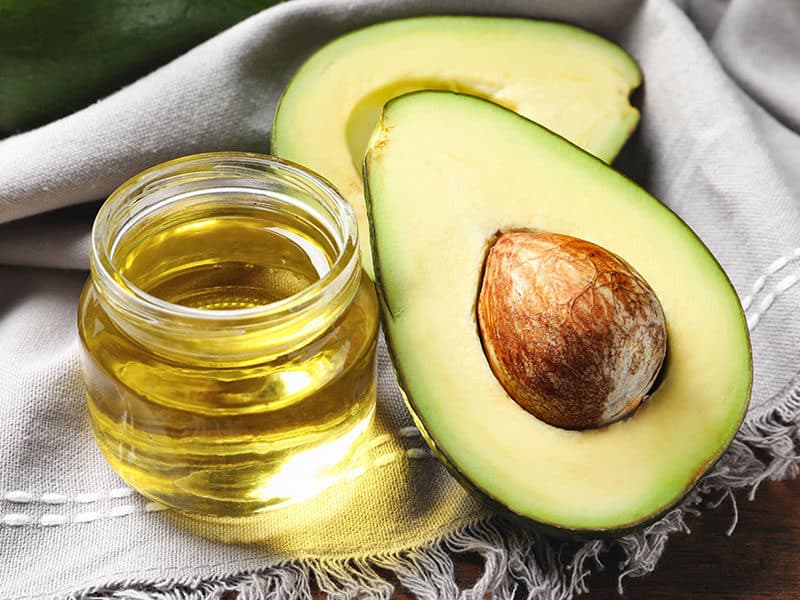
10. DIY Sesame Seed Oil
Run out of sesame oil? Just pick up some sesame seeds and make your oil at home! This would be the best sesame oil substitute that you can find. I won’t leave you perplexing any longer. Here is the recommended DIY sesame seed oil recipe!
Recommended Recipe:
Make sure to prepare ¼ cup of toasted sesame seeds, a cup of any neutral oil you like, a blender and a skillet! Then let’s jump on the process.
Step 1: Spread and roast seeds on the skillet for a minute
Step 2: Pour the oil all above seeds
Step 3: Cook over medium heat and blend for 2 minutes until seeds start turning into brown color
Step 4: Remove the mixture right after brown shape appears and let it cool a little bit
Step 5: Add the mixture into the blender and blend well for a few minutes
Step 6: Leave it strain through a cheese cloth then use it as need
Feel free to use the homemade oil just like using sesame oil, including marinating or frying. Additionally, a high-qualified airtight will help your DIY oils for more extended use.
This Youtuber made her sesame seed oil with the DIY recipe. Watch her video to take courage to make yours now.
Frequently Asked Questions
You may have some wonder after reading the information I have given. As usual, I am willing to answer these frequently asked questions in this section.
Further Advice
Sesame oil is a great choice for many people. Different types of sesame oil perform in different recipes. Some cooks use sesame oil as cooking oil because of its high smoke point; otherwise, some fall in love with the nutty flavor and earthy aroma.
However, it is not a significant challenge to find sesame oil alternatives. The key to successfully having a good swap is the recipes you take. The recipes may call for the intense flavor of the original oil or the high-fat content of cooking oil.
Sesame oil is not always available; it sometimes also causes allergies to some people. That’s why you need some sesame oil substitute. Follow my list to have the best option. Additionally, you could also choose a wide range of other seeds or nuts oil. They do work to meet your wishes.
I wonder whether my beloved readers could have unforgettable experiences while substituting sesame oil. If you do, don’t hesitate to let me know in the comment section. Like and share this article with your family and friends for a better life!
References
1. En.wikipedia.org.. Sesame oil – Wikipedia. [online] Available at: <https://en.wikipedia.org/wiki/Sesame_oil>
2. Healthline.. 10 Science-Backed Benefits of Sesame Oil. [online] Available at: <https://www.healthline.com/nutrition/sesame-oil-benefits>
3. eMediNexus.. Sesame oil for prevention and management of stretch marks during pregnancy. [online] Available at: <https://www.emedinexus.com/post/4993/sesame-oil-for-prevention-and-management-of-stretch-marks-during-pregnancy>

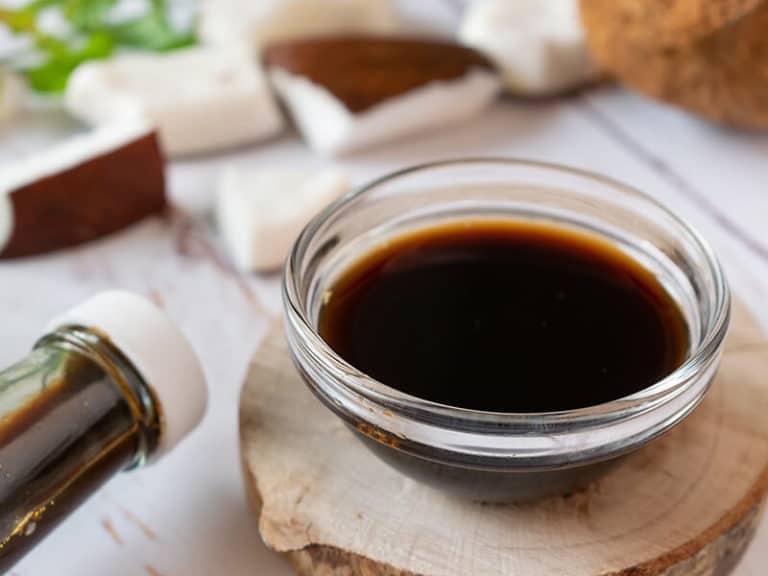
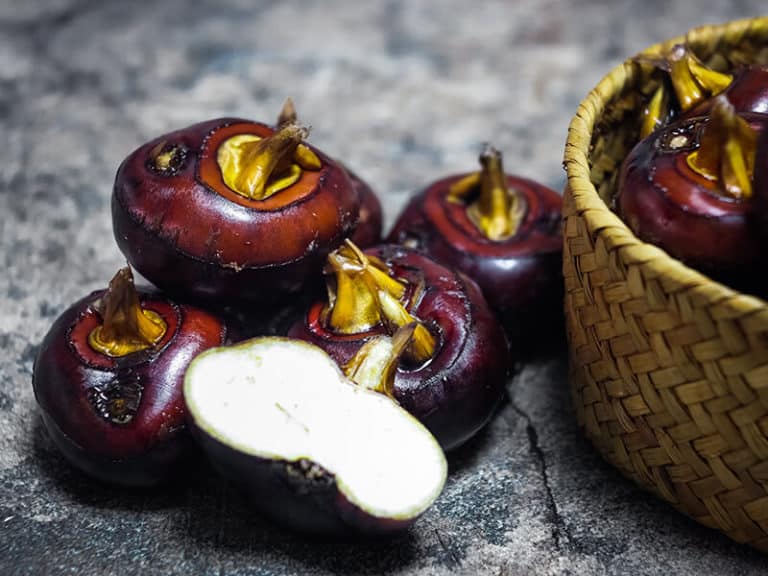
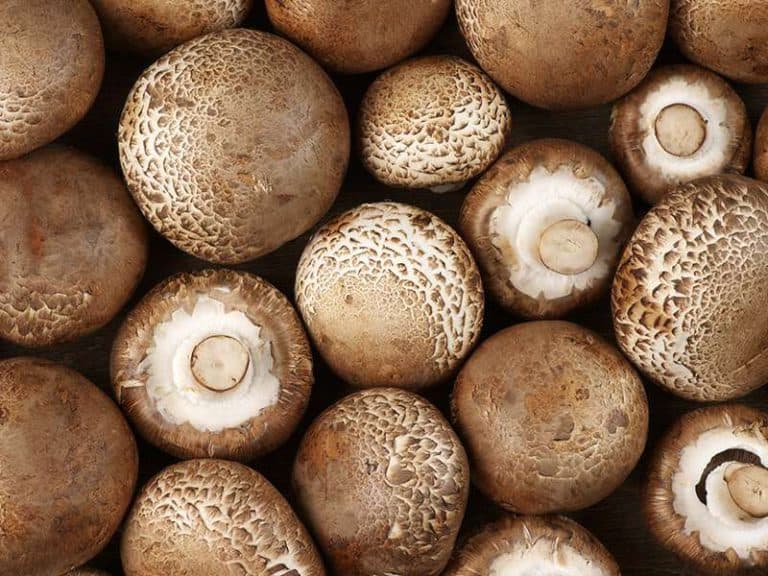

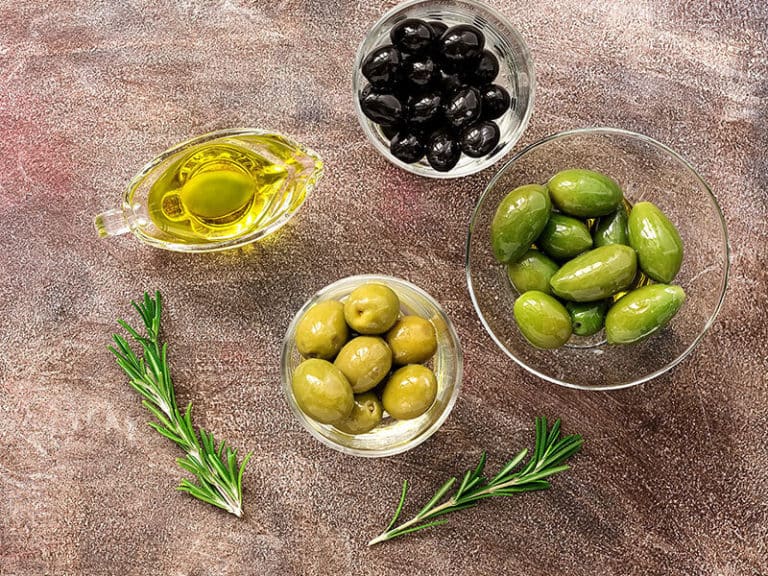
Amanda Collins
Founder and Senior Culinary Editor
Expertise
Culinary Arts and Management, Food Journalism and Critique, Recipe Development and Testing, Global Culinary Traditions, Sustainable Food Practices
Education
Institute of Culinary Education (ICE), New York, NY
Program: Diploma in Culinary Arts
Focus: Intensive hands-on training in culinary techniques, recipe development, and kitchen management, preparing students for professional roles in the culinary industry.
Monroe College, New Rochelle, NY
Program: Associate in Applied Science in Culinary Arts
Focus: Practical culinary skills, including cooking techniques, menu planning, and kitchen operations, with an emphasis on hands-on experience and industry standards.
Amanda Collins is a seasoned chef and food editor with a deep love for global flavors. Trained at the Institute of Culinary Education and Monroe College, and with over 15 years in the culinary field, Amanda has refined her skills in kitchens worldwide. Her background in food studies gives her a unique ability to share both recipes and the cultural stories that shape them.
As senior culinary editor at thebreslin.com, Amanda’s work brings authentic dishes to life, inviting readers to explore new flavors and techniques from around the globe. Her approachable style makes it easy for anyone to bring a bit of the world’s cuisine into their kitchen.